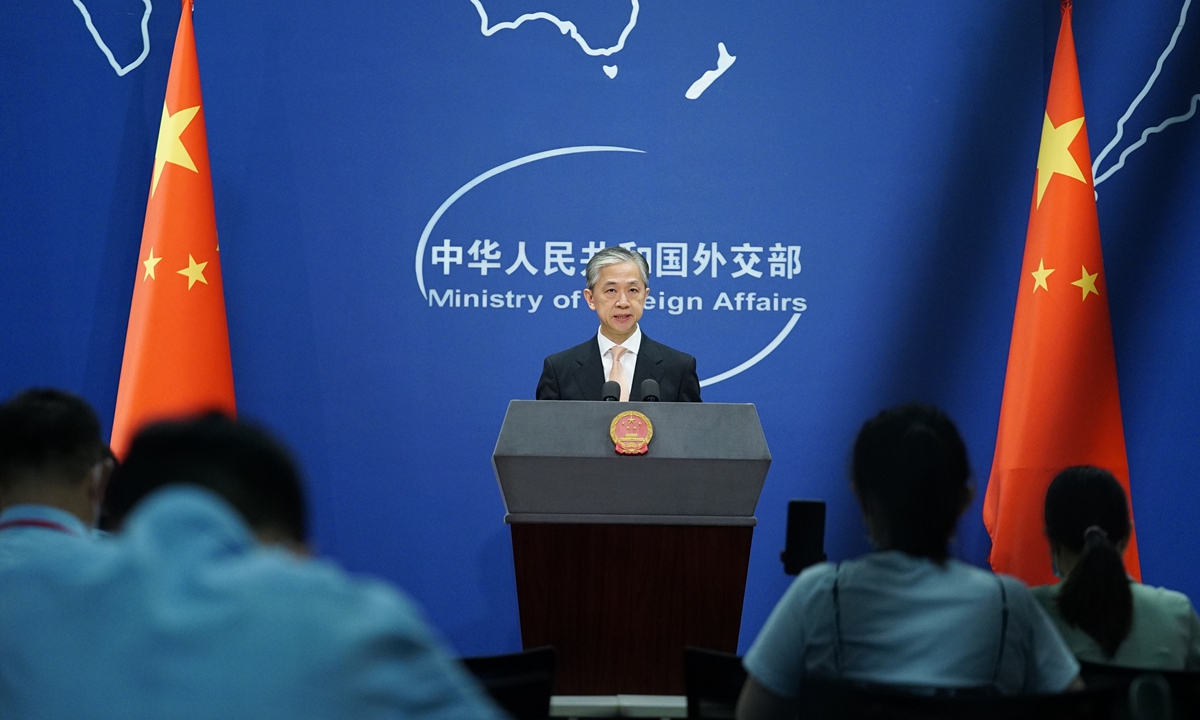FM slams US attempts to drive wedge between China and other Mekong countries

Wang Wenbin, spokesperson of China's Foreign Ministry Photo: VCG
The Chinese Foreign Ministry said the US attempts to drive a wedge between China and Mekong River countries will be in vain, after some US politicians groundlessly claimed that the 11 upstream dams built by China have adversely affected food security, the environment and people's lives along the Mekong River.
Chinese Foreign Ministry spokesperson Wang Wenbin said at Wednesday's press briefing that the US has repeatedly hyped up the issue of Lancang-Mekong water resources issue in order to drive a wedge between China and regional countries, and that the claims have no scientific basis.
All countries along the Mekong River have the right to develop and utilize water resources in a rational manner, said Wang, noting that Mekong countries have built over 300 hydropower stations of various types along the Mekong River and its main tributaries.
Based on scientific assessments, China has built 11 hydropower stations in the upstream of the river, which is known as the Lancang in China. These water conservancy facilities have played an important role in the sustainable economic and social development of the countries along the river basin. "It is because of ulterior motives that the US has singled out and smeared China's water infrastructure of damaging the basin," said Wang.
Wang pointed out that China's hydropower stations on the Lancang River, which "store floods in the rainy season and release water in the dry season," help to maintain the Mekong's flow during the dry season. The runoff of the Lancang River only accounts for 13.5 percent of the total water volume of the Mekong River, which means its outflow has a very limited impact on the overall water volume of the Mekong. The rhetoric from US politicians runs counter to scientific conclusions and common sense, he added.
At the third Lancang-Mekong Cooperation Leaders' Meeting on August 24, Chinese Premier Li Keqiang said China will share Lancang River's hydrological data for the entire year with the Mekong countries and work together to establish a Lancang-Mekong Water Resources Cooperation Information Sharing Platform.
In the Mekong-US partnership announcement issued on Monday, US Secretary of State Mike Pompeo said China had manipulated natural river flows in the Mekong River, and asked China to share its upstream data, including dam operation data.
Following the principles of extensive consultations, joint contributions and shared benefits, the Lancang-Mekong Cooperation (LMC) between Chi has achieved remarkable results and been widely welcomed and appreciated by countries in the region. The US will not succeed in bossing countries around in the Lancang-Mekong region, said Wang.
China has always maintained that the LMC should follow the spirit of openness and inclusiveness, and complement and develop in a coordinated manner with the existing sub-regional cooperation mechanisms, said Wang, noting that the US' real motivation behind stigmatizing China is questionable.
"Does the US want to achieve regional prosperity or undermine regional cooperation? Does the US want to help the Mekong countries against disasters, or is it trying to draw regional countries into the trap of great power confrontation? The US side should give an explanation," said Wang.
Mekong countries and China share the same river and have a close bond. Any attempt to harm relations between China and other countries in this region and undermine regional peace, stability, development and prosperity is doomed to be in vain, said Wang.